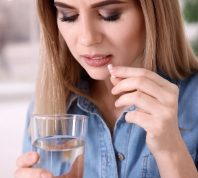
At this point in the history of COVID-19, much has changed. The virus is more familiar to scientists, it has mutated to cause milder illness in most people, and mask mandates are unlikely to return. However, public health experts emphasize that it's still important to keep from spreading COVID, because many people remain vulnerable to severe illness, hospitalization, and death from the virus. If you contract COVID in 2023, here's what you should do to protect others, according to the Centers for Disease Control and Prevention.
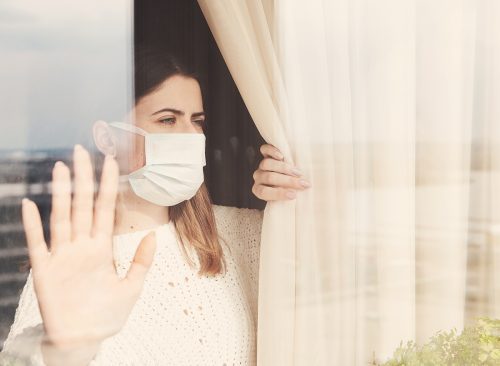
The CDC says that anyone with COVID should be isolated from other people for five full days or longer if they are seriously ill or symptoms haven't improved after five days. "The first day of isolation is defined as either the day after symptoms start, or the day after a positive test result if someone is asymptomatic," Time reports.

But what does isolation really mean? If you've tested positive for COVID, you should stay home from school or work and avoid other public places, the CDC says.
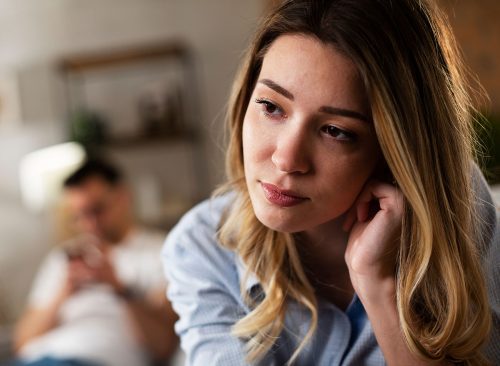
If you have COVID and live with other people, you should keep away from them as much as possible, the CDC recommends. Use a separate bathroom if you can, and avoid sharing household items such as cups and towels. If you can't isolate completely, wear a mask whenever you have to be around other people, the agency says.
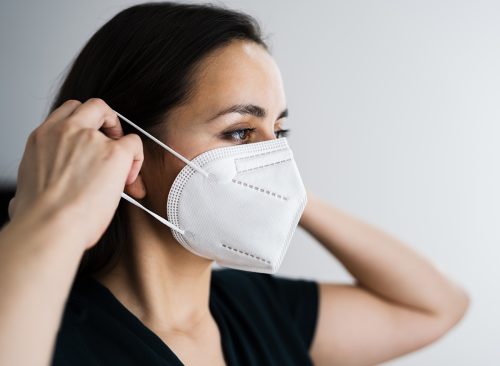
Some people who contract COVID are contagious for more than five days. In view of that, the CDC recommends that anyone with COVID should continue wearing a mask around other people indoors for five days after the isolation period ends. "If someone tests negative on two separate at-home tests taken 48 hours apart, however, the CDC considers them safe to be around other people without a mask, even if it hasn't been a full 10 days," Time reports.
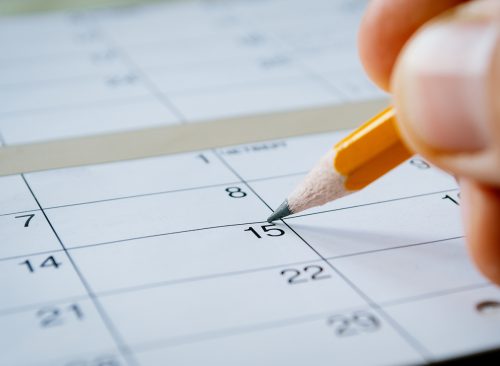
Katelyn Jetelina, an infectious disease expert and author of the newsletter Your Local Epidemiologist, says more than five days of isolation may be necessary to keep the virus from spreading. "COVID is not the flu," she told the news outlet. "We remain far more contagious for longer with COVID." Jetelina says she'd recommend people isolate themselves for ten days but recognizes that a lack of paid sick leave and child-care requirements make that unrealistic for many people.
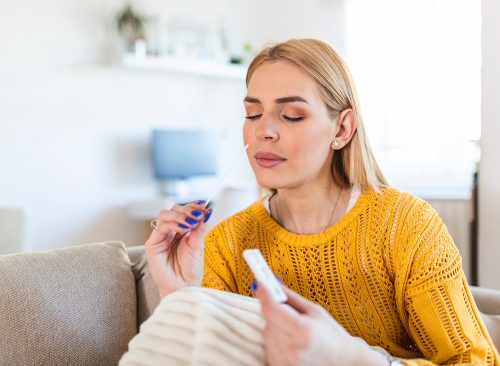
At-home COVID antigen tests are a good indicator if you're still contagious. A positive test indicates you're still likely to transmit the virus, while a negative test is a good sign you probably won't, experts say. It's a good idea to stock up on at-home tests now. Every American household is eligible to receive four free COVID-19 tests from the federal government; you can order them at covidtests.gov or by phoning 1-800-232-0233.
RELATED: Surprising Signs You've Already Had COVID
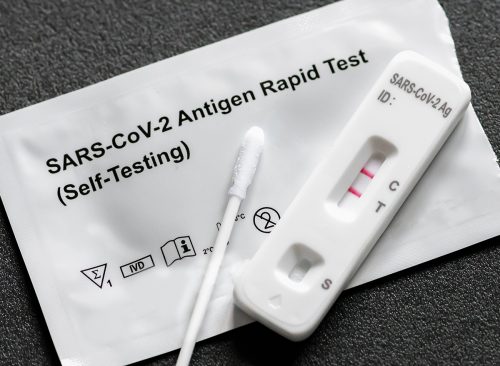
If you've recovered from COVID-19, get tested to find out if you're still contagious. Don't stop at one test, experts recommend. Most test manufacturers recommend a second test one to two days after a negative result to confirm.








